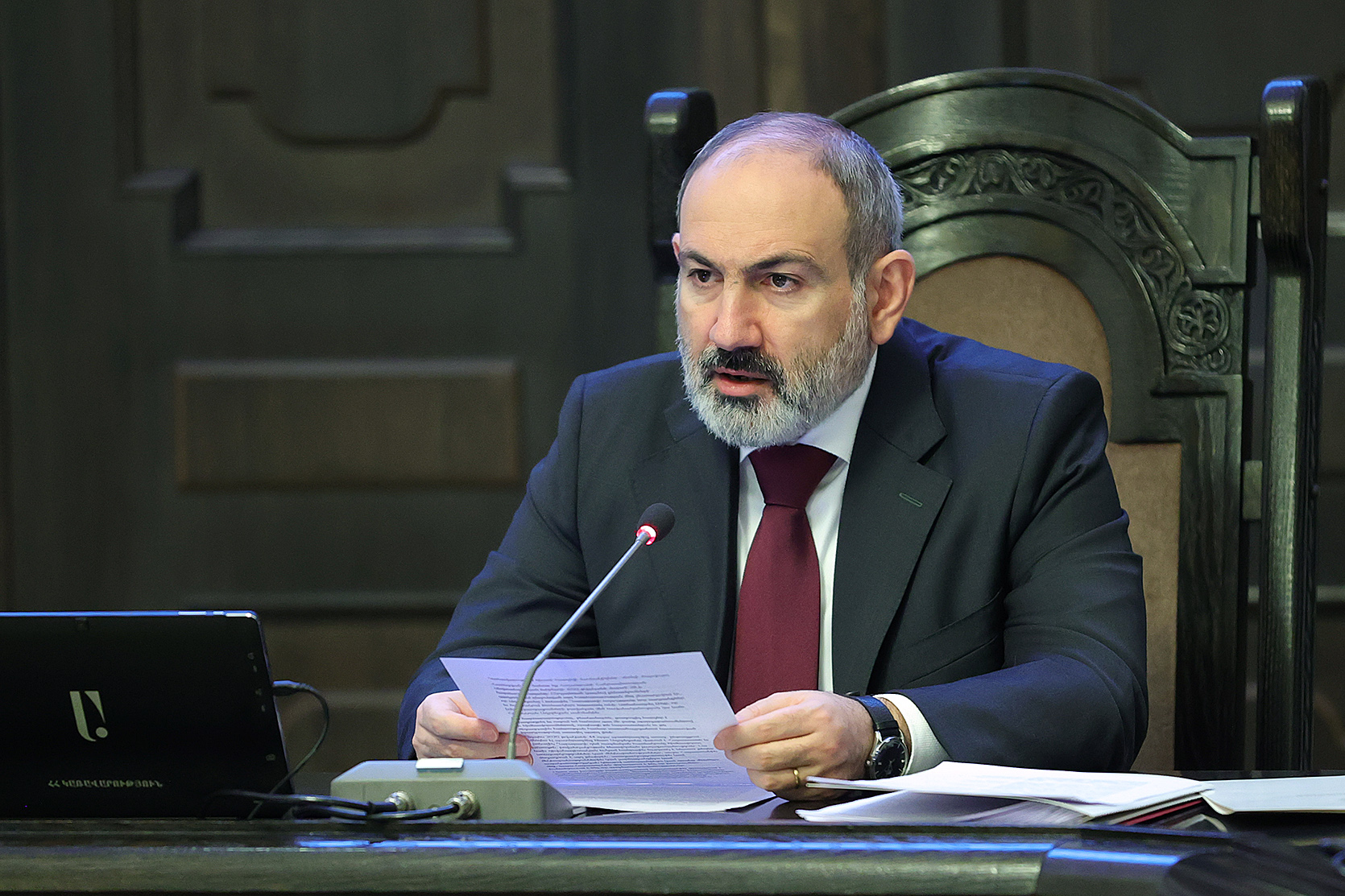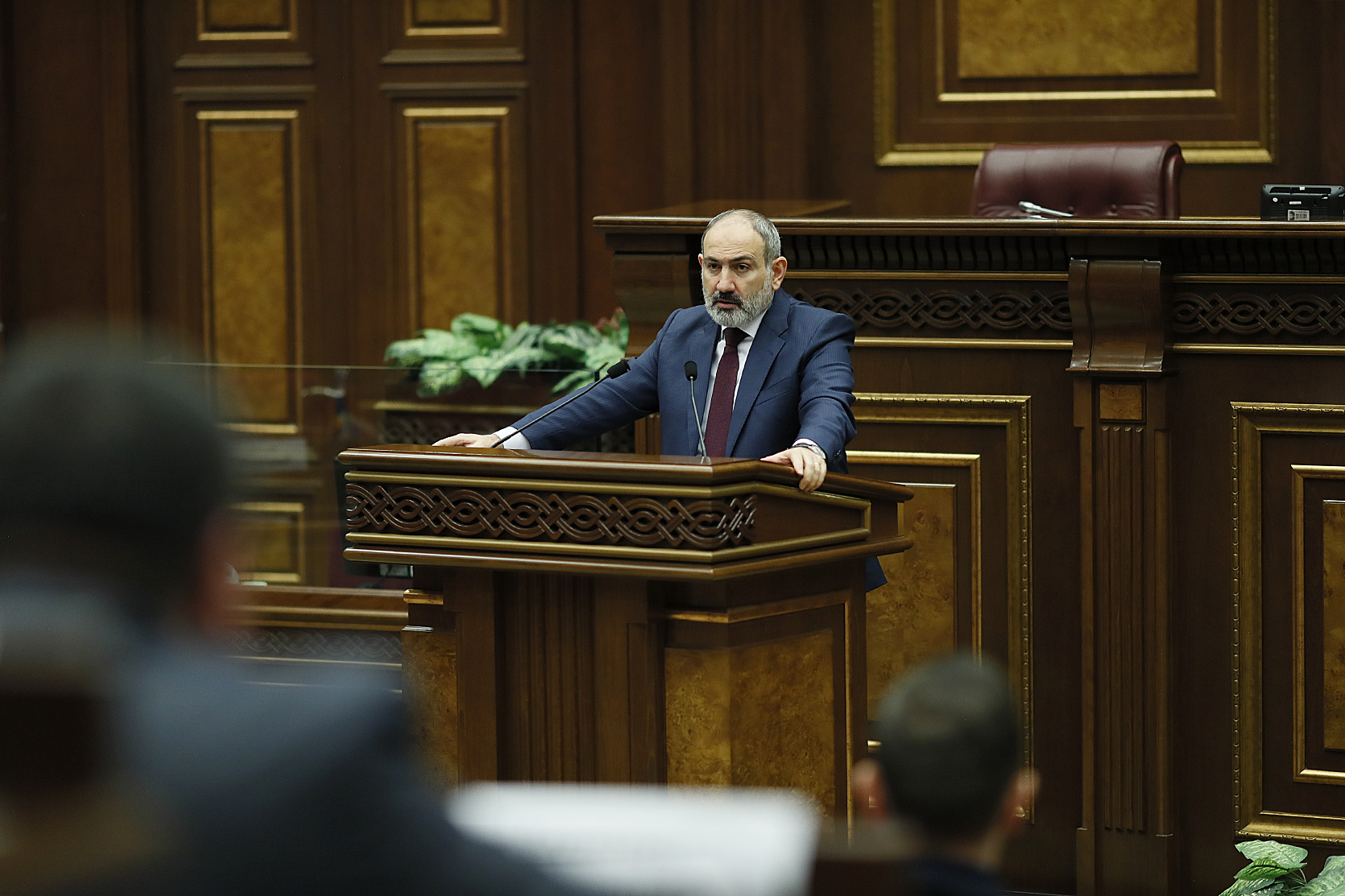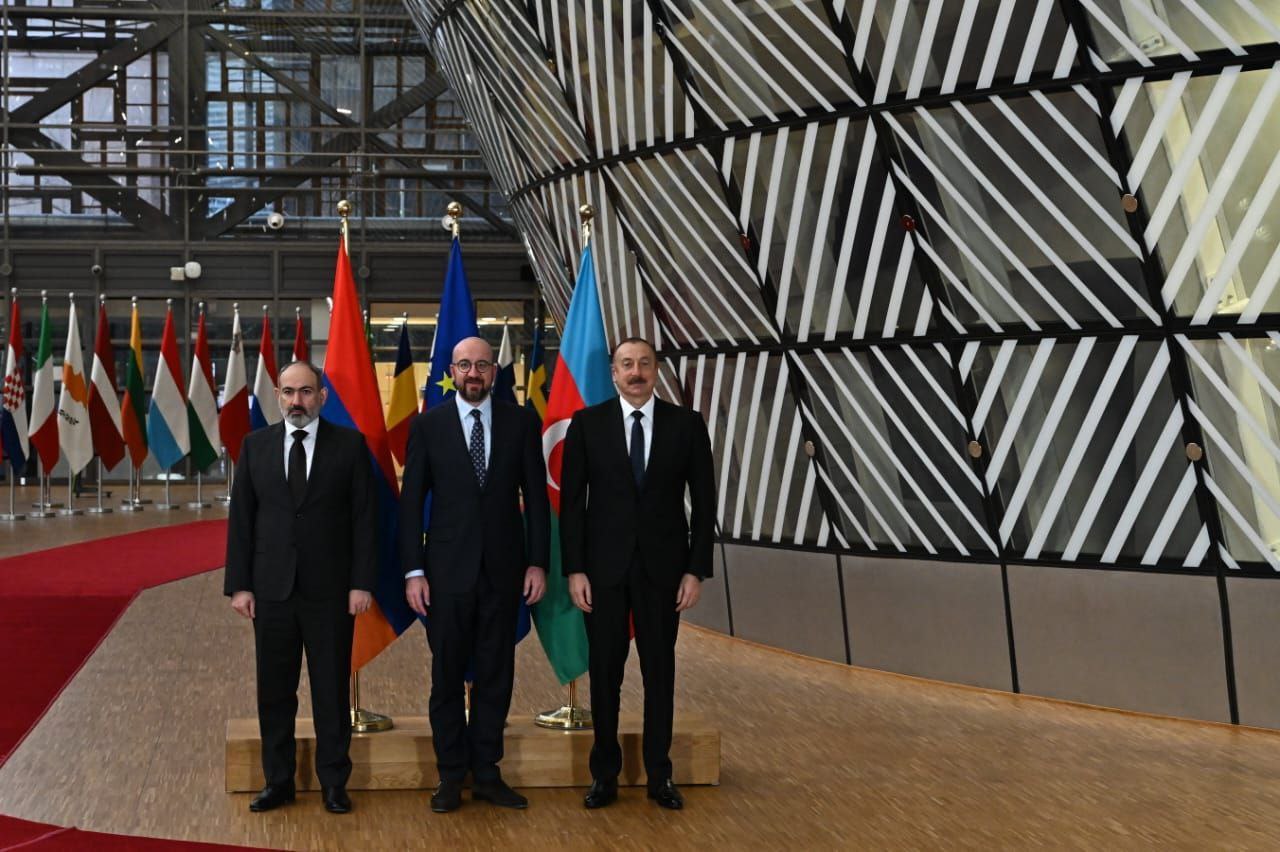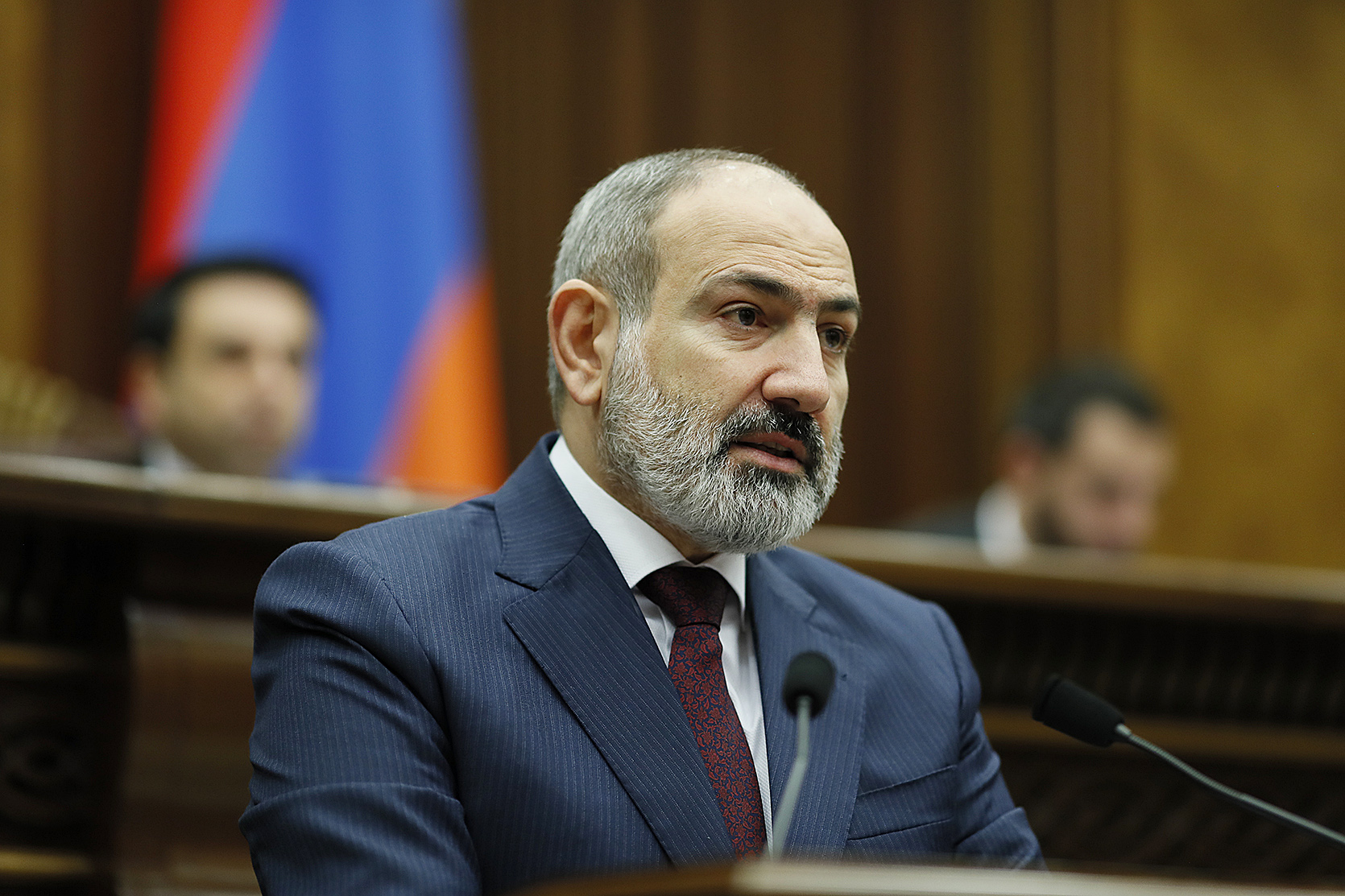Op-ed: "Role of mediators decreases as Yerevan, Baku enter direct dialogue"
Discussions about the future of the OSCE Minsk Group continue in Armenia. The latest news is that Igor Khovaev, co-chair of the OSCE Minsk Group from Russia, has been appointed Special Representative of the Minister of Foreign Affairs of the Russian Federation to promote the normalization of relations between Armenia and Azerbaijan. Moscow reports that Khovaev’s new status is a consequence of Paris and Washington’s refusal to work with Russia in this format.
The OSCE Minsk Group was established in 1992. This is a group of OSCE member states that led the search for a peaceful settlement and played a mediating role in the negotiations on the Karabakh conflict until the outbreak of the 2020 war. The Minsk Group consists of Germany, Italy, Finland, Sweden, Belarus, Turkey, Armenia, and Azerbaijan. Russia, the USA, and France are the group’s co-chairs.
The position of the United States and France was announced by the Russian Foreign Minister on April 8. Sergey Lavrov called such an approach of the other two mediators of the peace talks irresponsible and stressed that “it will not unsettle Moscow,” Russia will continue to contribute to the implementation of the agreements reached through its mediation by the parties to the conflict.
Lavrov’s statement was the reason for the intensification of discussions in Armenia about the future of the OSCE Minsk Group. Almost simultaneously, France and the United States officially announced their readiness to assist Yerevan and Baku in establishing peace, including as co-chairs of the Minsk Group.
- Future of Karabakh mediators: no more OSCE Minsk group?
- Armenian and Russian FMs meet in Moscow immediately after Pashinyan-Aliyev talks in Brussels
- Flag of discord: Yerevan at odds with Armenian opposition over Karabakh flag
“Situation in the South Caucasus does not allow for negotiation pauses”
This is a phrase from the statement of the official representative of the Russian Foreign Ministry, Maria Zakharova. She announced the appointment of the Russian co-chair of the Minsk Group, Igor Khovaev, as a special representative for “promoting the normalization of relations between Armenia and Azerbaijan”:
“On February 24 this year, Washington and Paris curtailed all contacts with Moscow within the framework of the “troika” of the co-chairs of the OSCE Minsk Group. Meanwhile […], further consistent steps are required to restore long-term peace and stability in the region, since the United States and France have ceased cooperation as co-chairs. In this regard, Ambassador-at-Large I. A. Khovaev will continue his work in a new capacity […]. The subject of the preparation of a peace treaty will be at the center of his attention. We count on the support of the efforts of I. A. Khovaev from our allies and partners in Baku and Yerevan”.
The last visit of a Russian diplomat to Armenia was at the end of March. Then Foreign Minister Ararat Mirzoyan and Khovaev discussed the situation on the line of contact in NK. This referred to the fact that the Azerbaijani Armed Forces captured the territories under the responsibility of Russian peacekeepers, “taking advantage of their inaction”.
The meeting also discussed the position of the Armenian side in the negotiations on a peace agreement between Armenia and Azerbaijan, which the Armenian side prefers to conduct through the mediation of the co-chairs of the OSCE Minsk Group.
French co-chairman’s prolonged visit to Yerevan
Bryce Roquefeuy arrived in Armenia soon after Lavrov’s statement. He has already met with the Minister of Foreign Affairs, the Secretary of the Security Council and the Prime Minister of Armenia.
According to the press service of the government, during a conversation with French diplomat Nikol Pashinyan once again stressed “the role of the OSCE Minsk Group Co-Chairs in the comprehensive settlement of the Nagorno-Karabakh conflict”.
The Armenian side has repeatedly spoken about its preference to hold negotiations with Azerbaijan in this format.
Moreover, the Armenian authorities are inclined to discuss issued beyond the Karabakh conflict through the mediation of the OSCE Minsk Group. They also see the forthcoming negotiations around the peace agreement with Azerbaijan in this format.
According to the official report, Nikol Pashinyan also stressed “the role of France as a co-chair of the OSCE Minsk Group”.
Washington is ‘ready to help’
On April 14, US State Department spokesman Ned Price again confirmed that Washington is ready to assist Yerevan and Baku in establishing peace, including through the OSCE Minsk Group:
“We remain committed to advancing the process of achieving a peaceful, democratic and prosperous future in the South Caucasus”.
The representative of the State Department recalled that his country welcomed the meeting between Pashinyan and Aliyev in Brussels and the agreements they reached:
“We continue to encourage further peace talks between Armenia and Azerbaijan”.
Expert commentary
Summarizing all these events, political scientist Tigran Grigoryan believes that cooperation between Moscow, Washington, and Paris within the framework of the co-chairmanship of the Minsk Group will be “problematic, if not impossible”. The granting of a new status to Igor Khovaev is an attempt by Russia to maintain a mediating role in the Armenian-Azerbaijani and Karabakh contexts.
“This takes us back to the early 1990s when Russia was represented in the Minsk Group by Ambassador Kazimirov, but he was also the Russian president’s special envoy to the Nagorno-Karabakh conflict”, the political analyst told JAMnews.
He does not expect Russia’s role to change due to Khovaev’s new status. According to him, only after the start of the active stage of negotiations on a peace agreement, the ambassador “will be actively involved in the process and will represent the interests of Russia”.
According to the expert, the usefulness of the Russian mediation mission can only be judged after clarifying Moscow’s position on the peace agreement:
“Armenia has significantly softened its position on the Karabakh issue. And now we need to understand whether it is in the interests of Russia, whether Russia is interested in Karabakh having a status within Azerbaijan. At first glance, one might assume that it does not, because, in the end, this decision or agreement will put an end to the Russian military presence, at least in Nagorno-Karabakh”.
According to Tigran Grigoryan, the situation will clear up only after the end of the war in Ukraine.
At the same time, he notes that the role of France and the United States, the other two co-chairing countries, is still limited to statements.
According to the political scientist, the Minsk Group will continue to exist only on paper – since the parties have entered the stage of direct dialogue, the role of mediators has decreased.
By direct communication, he means both a telephone conversation between Foreign Ministers Ararat Mirzoyan and Jeyhun Bayramov and a meeting between Secretary of the Armenian Security Council Armen Grigoryan and Assistant to the President of Azerbaijan Hikmet Hajiyev.
However, Tigran Grigoryan does not rule out the possibility of activation of the Minsk Group. According to him, for this, it is necessary for Armenia to actively promote the agenda of its preservation:
“And the point is not to preserve the format of the Minsk Group co-chairs but to preserve the Minsk Group itself. For Armenia, at this stage, it would be right to take this approach: the main thing is to save the Minsk Group”.
The political scientist explains the need for Armenia to stick to the Minsk Group format by the fact that over the past decades it has formed a set of principles. Among them are the so-called “Madrid principles” proposed for the settlement of the Karabakh conflict.
It is in this proposal of the mediators to the parties to the conflict that the right of nations to self-determination, the issue of the legal and political status of Nagorno-Karabakh, which “Azerbaijan is trying to oust” from the negotiation process, are stipulated.






















